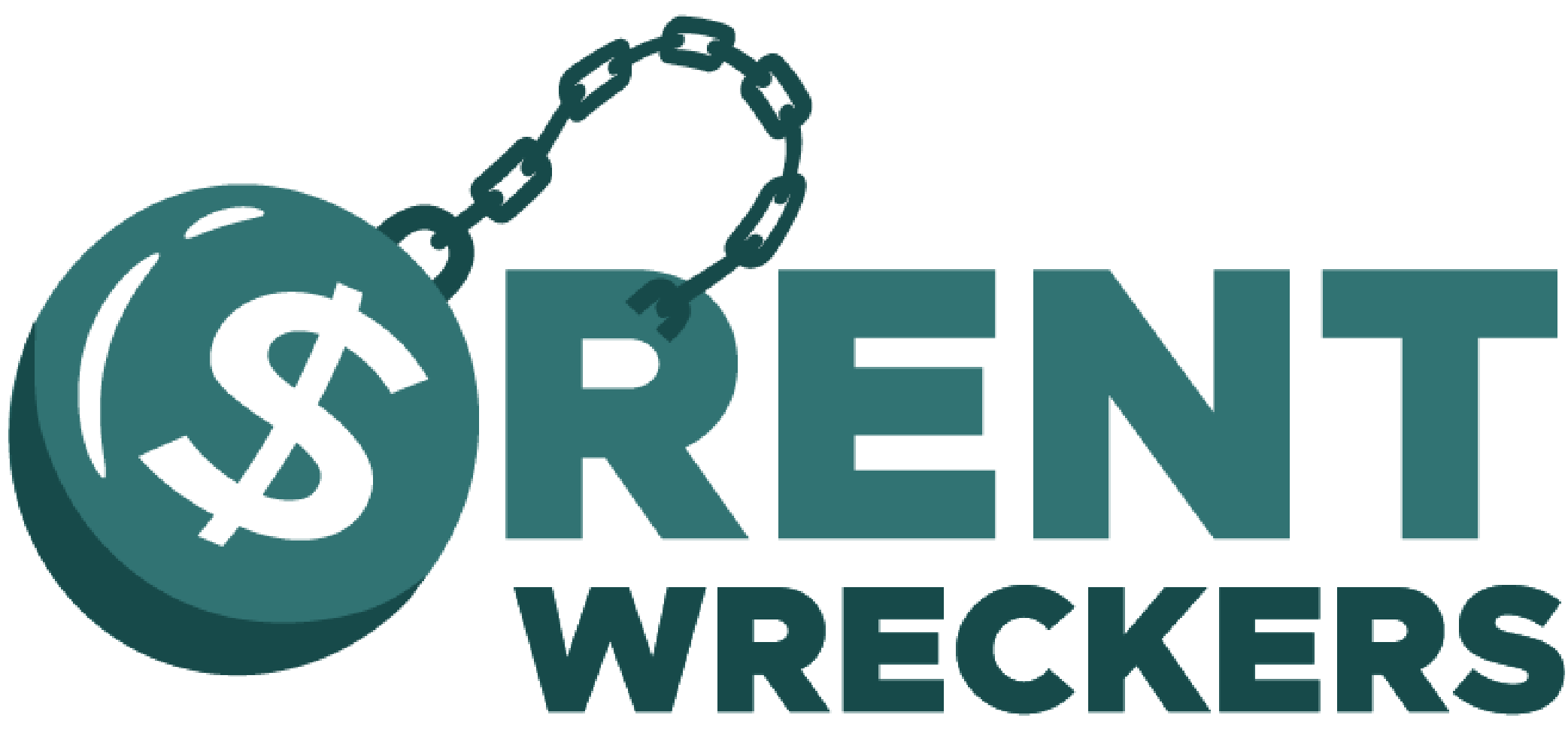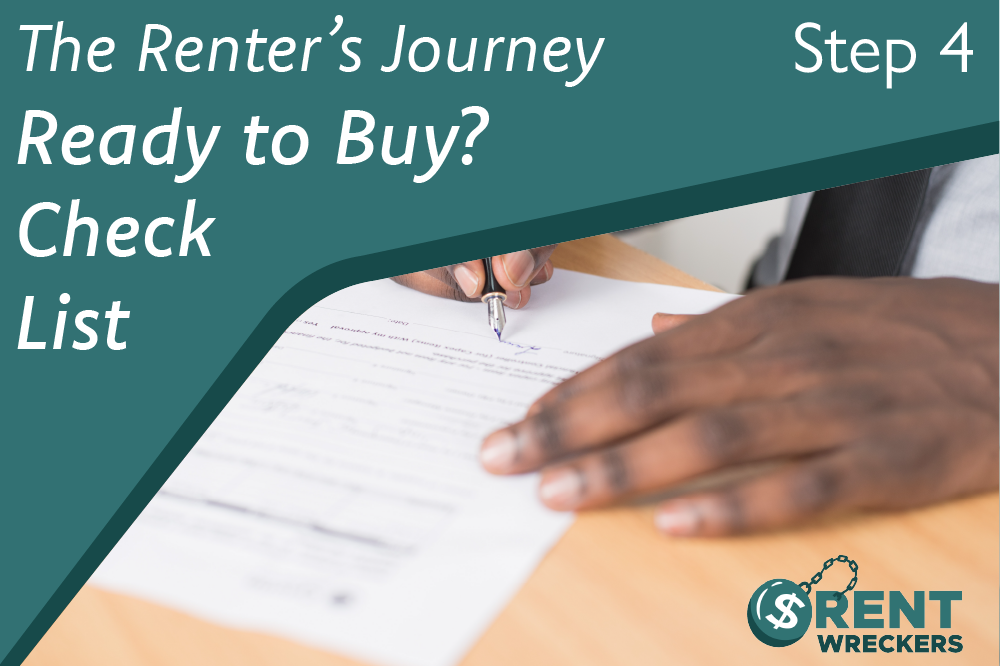On the road that leads to homeownership, there are a lot of steps. However, just as the old proverb says, “A journey of a thousand miles begins with a single step”. In this series of articles, we will walk you through several of the crucial steps that many homeowners before you have taken. Along the way, we will give you some tips and advice on how to navigate this journey so that, someday, you will step over the threshold of your very own home.
Step 4: Are You Ready to Buy? A Checklist
Making the choice to buy a home is a huge commitment, and it can feel like an overwhelming task. There are a lot of steps involved and a lot of money. But there have been countless others who have gone through this undertaking and, if it is the right decision for you, then you can rest assured that you will be able to achieve this monumental accomplishment as well. Let’s dive into our checklist to can give you the confidence you might need to make the call.
-
Crunch the Numbers
First, you need to be aware of how much house you will be able to afford. In order to determine this as accurately as you can, you will need to research your credit score and make sure that you are using recent financial information.
Know Your Credit Score
Ideally, the earlier you start this process the better. Repair and building credit takes months or even years, so get a head start here, just in case you need to make adjustments before fully entering the market. Typically, mortgage lenders want to see a minimum credit score between 580 and 620, but higher is absolutely better. A higher score means that you will qualify for lower rates and better terms when you do finally sit down at the negotiating table. Here are a few pointers for how to improve your credit:
- Request a copy of your credit report from each of the three main credit reporting bureaus – Equifax, Experian, and TransUnion. You are eligible for one free copy from each company annually.
- If you find any incorrect entries on your reports, file a dispute immediately with the bureau or bureaus that list the error.
- The lower your debt-to-income (DTI) ratio the better, so you want to lower your credit card balances as much as possible. Most lenders want to see a DTI no higher than 36-43% unless you can bring other “compensating factors” to the table.
- Perhaps the biggest impact you can have is to pay your bills on time. Diligent financial habits are the best way to raise your credit score and show mortgage lenders that you are financially responsible.
Understand Your Needs
Finding the type of home that fulfills the needs of your particular lifestyle and future goals is crucial. Do you need a condo, a duplex, a multi-family building, a single-family dwelling, or a townhouse? Picture yourself 5 to 10 years down the road. Where do you want to be? Where do you want to call home?
Make a list of the pros and cons of different kinds of properties and understand what you are willing to compromise on, and what you are not. While you will be making a massive investment, however, it is important to maintain some flexibility in your expectations. Know the difference between what is a “need” and what is a “want”.
There are websites that have interactive mortgage calculators that may be able to help you determine things like down payment, monthly mortgage payments, and the total purchasing price.
The most important factor during this stage is keeping an honest mindset regarding the reality of your financial situation. Keeping your assessments genuine and realistic here will pave the way for much smoother steps later on in your journey. It will also prevent you from wasting time looking at properties that fail to meet your non-negotiable needs, such as being outside of your budget.
-
Build Your Savings
Generally speaking, you will pay anywhere between 3-20% of the total purchase price of a property when you make the down payment. Most people do not have that kind of money available for a solitary purchase, so setting goals for yourself and beginning that process early is a great idea. Put as much as you comfortably can aside each month into a separate account dedicated towards the future purchase of your home.
The Down Payment
Likely the largest amount of capital you are going to have to put forward when signing a mortgage loan will be the down payment. If you are fortunate enough to have down payment gifts, you need to deposit them at least two months before you approach potential lending agencies. There are down payment assistance programs offered by state and local governments which you could potentially qualify for, but we’ll touch on those in a moment.
Avoid opening any new lines of credit or adopting any additional loans for the time being. It impacts your credit score and increases how risky you appear to potential lenders.
Anticipating Additional Expenses
Unfortunately, there are a lot of additional costs involved in the closing. It will be incredibly helpful to understand what those might be and to begin setting money aside for them as well. Below is a list of costs to keep in mind.
- HOA Fees (Potentially) – determine whether your new neighbor has a Home Owners’ Association and what the yearly dues are.
- Home Inspection – hire a professional that you trust to perform an inspection before you purchase any home.
- Homeowners Insurance – protect your assets and belongings against emergencies and natural disasters such as floods, hurricanes, tornadoes, and wildfires.
- Maintenance & Upkeep – the cost for unexpected damages and repairs will come out of your pocket (unless covered by insurance).
- Property Taxes – look into the average cost of this annual expense for homes in your new area.
- Utilities – additional bills add up. Be sure to account for things like electricity, water, internet, and other living expenses.
-
Learn the Ropes
The more you understand about the home-buying process, the better prepared you are going to be when that time comes. There are a lot of free resources available that you can use to educate yourself about how mortgage payments work, which documents you will need to provide, and what the requirements are for different mortgage lenders.
Know What Your Options Are
In your research, figure out which lending company best fits your specific needs and look at the different types of mortgage loans they offer. When you find one that you think you could qualify for, apply for pre-approval. This process will help them to determine the best offer they are able to provide for you and it gives you a much clearer idea of the financial commitment you may be looking at taking on. Furthermore, having a pre-approval letter when you go to make an actual offer goes a long way for the mortgage lender.
Research Loan Programs
There are many different programs available that can help people afford the purchase of a home. Do your homework for these types of programs and see if you might qualify. Many of those listed below are for first-time homebuyers, but if you haven’t owned property for the last three years, you might be surprised to know that you might still be eligible.
- FHA Loans – loans backed by the Federal Housing Administration.
- Grants – money gifted to you without any repayment required.
- Low-Interest Loans – loans that are repaid over a specific time.
- USDA Loans – loans backed by the U.S. Department of Agriculture.
- VA Loans – loans backed by the U.S. Department of Veteran Affairs.
- Zero-Interest (Deferred Payment Loans) – loans that don’t require repayment until the home is sold or the mortgage expires.
- Zero-Interest (Forgivable Loans) – loans that are erased after a specific time, as long as you still own the home when that occurs.
-
Hire an Agent
As stated previously, purchasing a home is a massive commitment. With so many moving parts and boxes that need to be ticked, it is imperative that you have somebody in your corner through as much of this process as feasible. The seller’s agent is going to have their best interests in mind. The mortgage lender will have their companies’ best interests in mind. You should have someone in who you can put your trust and confidence to have your best interests in mind.
Reach out to your friends and relatives to begin, but don’t stop there. Read online reviews and interview potential agents before you decide on who to hire. Don’t settle – find someone that you know fits best and who understands your needs.




